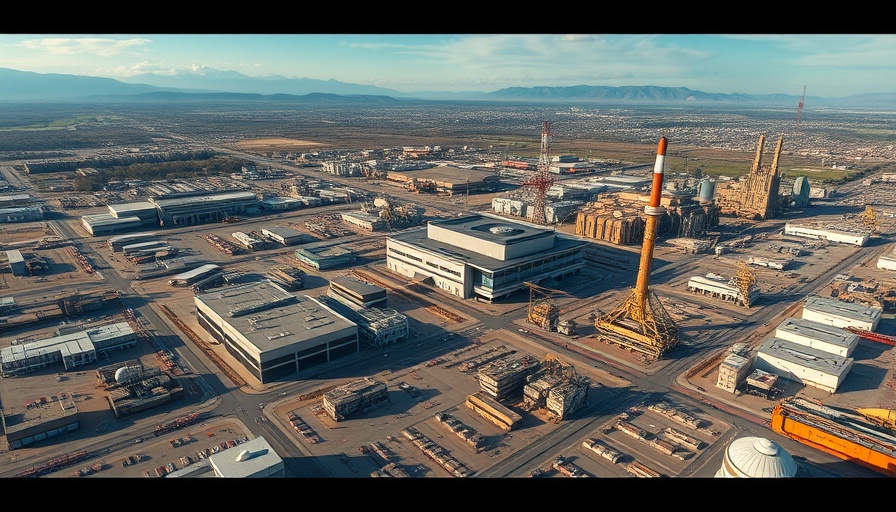
The Troubling Trajectory of Nikola: A Cash Crisis Looms
Nikola Corporation, once heralded as a trailblazer in the electric and hydrogen-powered truck market, now finds itself at a precarious crossroads. As the company grapples with warnings from Q3 2024 regarding a critical cash crisis, suggestions are emerging that a potential sale of the business might be in the pipeline. This dire situation has sparked considerable concern among investors and industry stakeholders alike, triggering a marked decline in Nikola's share prices.
Understanding the Current Landscape for Electric Truck Manufacturers
The electric vehicle (EV) landscape is incredibly competitive, populated by both established automotive giants and nimble startups. Companies like Rivian and Lordstown Motors are vying for market share, and even legacy manufacturers such as Ford and General Motors are pivoting to electrification at an unprecedented scale. Nikola's struggle raises questions about its long-term viability in such a saturated marketplace, particularly as it aims to position itself against both traditional rivals and newer entrants.
Historical Context: The Rise and Struggles of Nikola
Nikola burst onto the scene with ambitious promises of revolutionizing transportation through innovation in hydrogen fuel cells and electric drivetrains. However, since its dazzling public debut, the company has faced a series of setbacks, including supply chain disruptions and allegations of misleading investors regarding its technology. Understanding this history provides essential insights into how a once-optimistic future quickly turned into a financial challenge that could now lead to a potential sale.
Potential Outcomes: What Would a Sale Mean?
Should Nikola decide to pursue a sale, various outcomes are possible. A strategic buyer might bring the necessary capital and expertise to salvage Nikola's technologies and product line. Alternatively, a buyout could signal the death knell for the company’s unique vision, leading to a slow phasing out of its current initiatives. For dealers and financial managers, understanding these dynamics can shape critical decisions in inventory management, future investments in EV technology, and potential partnerships.
The Importance of Transparency in Corporate Communications
The communications surrounding Nikola's challenges exemplify the broader trend of the need for transparency in corporate governance within the industry. As markets are influenced not just by product performance, but also by trust and public perception, Nikola’s handling of this crisis may provide lessons for other emerging companies in the sector regarding managing shareholder expectations and promptly addressing operational setbacks.
Emotional Reactions and Investor Sentiment
Investor sentiment can be fragile, particularly in the volatile automotive sector where innovations are the lifeblood of success. The rapid plummet in share prices following reports of Nikola’s financial distress has elicited concern not only over the company’s survival but also about the confidence in the EV market as a whole. Understanding investor emotions and market reactions can equip dealers and financial managers with the knowledge to navigate similar situations with their own fleets and partnerships.
 Add Row
Add Row  Add
Add 




Write A Comment